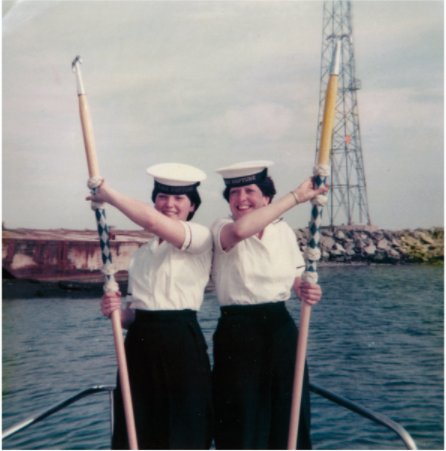It can be overwhelming to think about getting your whole life story on paper — but we’re here to help.
Writing your personal biography can be one of the most satisfying projects you ever embark on. Research has shown that it can provide strong mental health benefits, and your story is definitely worth telling. The process of writing your memoirs can help you gain perspective on past events, relive wonderful memories and even rekindle relationships with people you’ve drifted away from over the years.
You’ll also create an amazing gift for your family and generations to come, who will love gaining insight not only into who you are as a person, but also what it was like to live through a certain era. You’ll be providing an insider’s look at history, as you lived it.
But to do all that, you have to get started. Try these tips to clear your mind and commit to the very worthwhile project of writing your autobiography. 
1. Gather Old Photos to Jog Your Memory
The longer you live, the more you have to remember, so you can be forgiven if some events are a little hazy. Before you even write a word, make it your mission to dig up as many photos from your life as you can — the older, the better. Ask friends and family for help, and just start putting them in order to the best of your ability.
From there, you can take quick notes on the back (use a sticky note if you don’t want to alter an original photo). Try jotting down the 5Ws for each photo: who, what, when, where and why. This will refresh your memory and provide an incredible resource when you start writing.
2. Break Your Life Into Personal Eras
One of the reasons it can feel so difficult to begin a life story is that it is a big task. So make it smaller! To do this, think about breaking your life into eras — time periods that stand out. You may group them by where you lived or what job you had. You might also consider breaking your life into "chapters" by milestones: childhood, college, career, family, retirement, etc.
If you’re having trouble, start by breaking things into decades: your 20s, 30s, and so on. List major events of each decade to get a better feel for how your life had its own eras, just like a history book. From there, you can focus on one era at a time to keep from feeling overwhelmed.
3. Find Your Theme
It’s also important to remember that you don’t have to cover every single thing that ever happened to you in your memoir. That’s way too much pressure, and it’s not at all necessary to create a compelling story.
Instead, consider what the theme of your life might be overall — is there a particular message you want people to get from reading your book? A lesson you have learned? Choosing a theme will help you select anecdotes and events to focus on, which in turn will streamline your writing.
4. Write a Little Bit Each Day
There’s no rule that says you have to sit down and write until the book is finished — in fact, that’s a recipe for disaster! It’s much better to go slow and steady so you can actually finish your memoir.
To this end, try carving out a specific writing time and place each day so you can build a strong habit. Just 30 minutes each day will add up over time, and you’ll have fleshed out a good deal of your book before you know it — no added stress required.
5. Find a Trusted Sounding Board
As you build your new writing habit, it will help to find ways to keep yourself accountable so you don’t skip your writing sessions. The best way to do this is to tell a friend about your project. If you like, you can even ask them to check in with you about your progress, which will provide incentive for you to have something to show them.
It can also be hugely helpful to discuss your memories and ideas with another person to help you shape the story. Which version of an anecdote works best? Feedback from someone you trust will encourage you to keep going.
How StoryTerrace Can Help
Of course, the ultimate sounding board is another writer. If the challenge of writing your autobiography alone still feels too daunting, working with a StoryTerrace ghostwriter can be a transformative experience. Our professional writers will help you decide how to organize your memoir, and they’ll spend hours interviewing you to develop just the right details for the narrative. Best of all, they have the expertise to turn your memories into a well-crafted piece of literature that will stand the test of time. All you have to do is tell your story, and they do the heavy lifting to get the words down on the page.
Whether you choose to go it alone or get some extra help, writing your memoir will be a project you will always be proud of — and the sense of accomplishment you feel when you share the final product will be its own reward.%20with%20their%20StoryTerrace%20writer%20Ron%20Shillingford_5TipsForWritingYourLifeStoryBlog.webp?width=1619&name=Clients%20Diane%20and%20Audie%20Cummings%20(left)%20with%20their%20StoryTerrace%20writer%20Ron%20Shillingford_5TipsForWritingYourLifeStoryBlog.webp)
Clients Diane and Audie Cummings (left) with their StoryTerrace writer Ron Shillingford
Ready to start writing your own autobiography? We can streamline the process by pairing you with a talented ghostwriter to help you put it all together. To find your perfect writer, contact StoryTerrace or sign up for our newsletter for more helpful tips.



